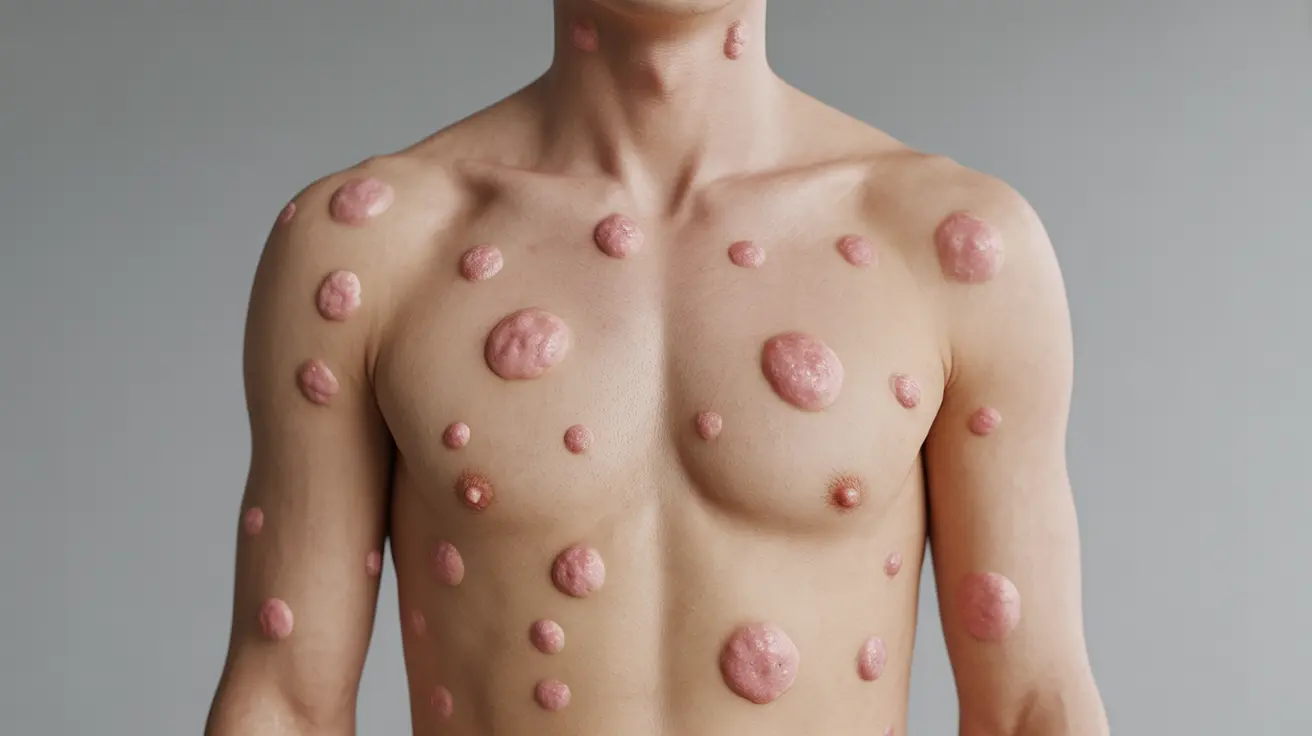Discovering hives all over your body can be an alarming experience. These raised, itchy welts can appear suddenly and spread rapidly, leaving many people wondering whether they need immediate medical attention. Understanding when to seek emergency care versus managing hives at home is crucial for your health and safety.
While most cases of hives (urticaria) are not life-threatening, certain symptoms and circumstances require prompt medical evaluation. This comprehensive guide will help you recognize when to go to the hospital, identify emergency warning signs, and learn about effective home management strategies.
Emergency Warning Signs: When to Go to the Hospital
Certain symptoms accompanying widespread hives warrant immediate emergency care:
- Difficulty breathing or wheezing
- Swelling of the throat, tongue, or lips
- Dizziness or feeling faint
- Rapid pulse
- Severe chest tightness
- Nausea and vomiting
If you experience any of these symptoms along with hives, don't hesitate to seek emergency medical attention, as they could indicate a severe allergic reaction (anaphylaxis).
Understanding Widespread Hives
Hives covering large portions of your body may develop due to various triggers:
- Allergic reactions to foods, medications, or insect stings
- Viral infections
- Physical triggers (heat, cold, pressure, or exercise)
- Stress or anxiety
- Autoimmune conditions
- Environmental allergens
The extent of body coverage alone isn't always an indicator for emergency care, but it's important to monitor how quickly the hives are spreading and any accompanying symptoms.
Home Management Strategies
For mild cases of hives without severe symptoms, these home remedies may provide relief:
- Take over-the-counter antihistamines
- Apply cool compresses to affected areas
- Wear loose, cotton clothing
- Avoid hot showers or baths
- Keep a diary of potential triggers
- Stay in a cool, comfortable environment
When to See an Allergist or Healthcare Provider
Schedule a non-emergency medical appointment if:
- Hives persist for more than 24-48 hours
- Over-the-counter treatments aren't providing relief
- Hives recur frequently without clear triggers
- You need help identifying potential allergens
- The condition interferes with daily activities or sleep
Frequently Asked Questions
When should I go to the hospital if I have hives all over my body?
Go to the hospital immediately if you experience hives along with difficulty breathing, throat swelling, dizziness, or rapid pulse. These symptoms may indicate a severe allergic reaction requiring emergency treatment.
What symptoms with hives indicate a medical emergency requiring urgent care?
Emergency symptoms include difficulty breathing, throat or tongue swelling, chest tightness, severe dizziness, rapid pulse, and persistent vomiting. These signs suggest anaphylaxis and require immediate medical attention.
How can I manage mild hives at home before seeing a doctor?
Manage mild hives by taking over-the-counter antihistamines, applying cool compresses, wearing loose clothing, and avoiding hot showers. Keep track of potential triggers and stay in a cool environment.
What are the common causes and triggers of hives covering my whole body?
Common triggers include food allergies, medications, insect stings, viral infections, physical factors (heat/cold), stress, and environmental allergens. Identifying specific triggers can help prevent future outbreaks.
When is it necessary to see a doctor or allergist for persistent or widespread hives?
Consult a healthcare provider if hives persist beyond 48 hours, don't respond to over-the-counter treatments, recur frequently, or significantly impact your daily life. An allergist can help identify triggers and develop an appropriate treatment plan.




